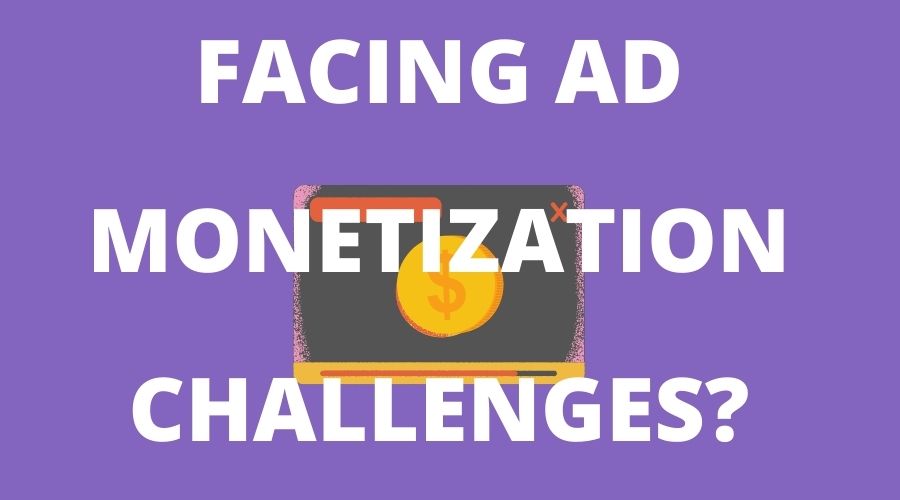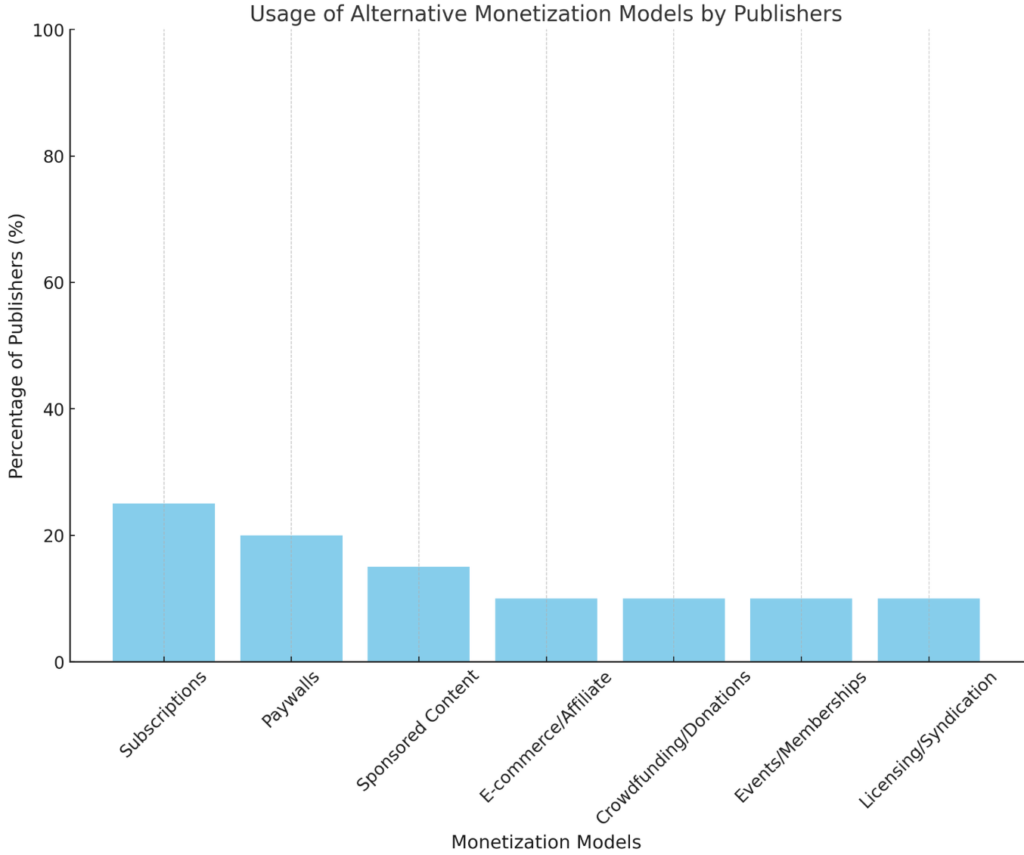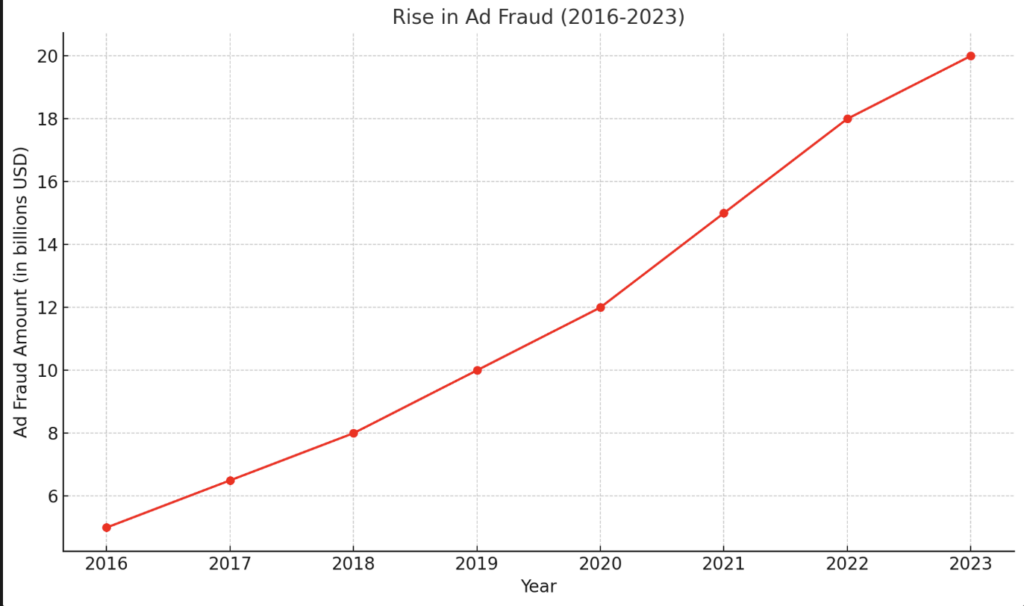
2024 and beyond present several significant changes in ad monetization for publishers. Preparing for these changes will involve overcoming some challenges, however, they will ultimately lead to ad monetization methods that are more effective for publishers and give users more control over their data and privacy. Adapting to the ad monetization challenges of 2024 will benefit customers, publishers, and marketers alike.

As major browsers phase out third-party cookies, publishers will need to find new ways to collect and utilize data for targeted advertising. This shift will require investment in new technologies and strategies, such as first-party data collection and contextual targeting.
With third-party cookies gone, first-party data becomes invaluable. This is data collected directly from your audience through your digital properties. Publishers are increasingly focusing on ways to encourage users to share their data willingly, such as through subscriptions, newsletters, registrations, and loyalty programs. The key here is to offer value in exchange for data, ensuring users understand the benefits of sharing their information.
Contextual advertising is also making a comeback. This approach involves placing ads based on the content of the webpage rather than the user’s past behavior. For example, advertising sporting goods on a sports news website. It requires a deep understanding of the content and context in which the ad will appear.
New solutions are being developed to replace cookies, such as universal or unified ID solutions. These are identifiers based on opted-in user data, providing a privacy-compliant way to track users across websites. They rely on first-party data and require user consent, aligning with stricter privacy norms.
Some are also exploring the potential of blockchain technology for advertising. This could involve decentralized identity solutions where users have more control over their data, and transactions are transparent and secure.
Check out more third-party cookie alternatives here.
Thanks to the ever-rising demand for more personalized advertising, changes in data management will have a big impact in 2024. Continuing to meet this demand while meeting changing regulatory requirements and data privacy expectations will pressure publishers to keep up. Providing this personalization should be a priority for publishers not just because it’s what consumers want but also because it makes their platform more attractive to advertisers.
On the other hand, this also represents an opportunity for publishers to optimize how they gather consumer data. The result is creating a personalized ad experience for each user based on information they have provided you directly, rather than gathered from third-party sources such as tracking cookies.
This change means an increased focus on encouraging users to provide more information about their preferences and narrowing down the key data points you need to provide effective personalization. After all, while users want better control and understand how companies use their data, they don’t want to spend lots of time completing exhaustive opt-in processes.
And on that note, publishers will also need to think about the value proposition to the user of providing that zero-party data. In other words, how will that data be used to provide a better experience to the user, besides more relevant ads?
Using customer data to deliver more relevant content provides an immediate improvement to their experience interacting with your content. This is a valuable incentive to encourage users to complete your opt-in, survey, or poll.
Publishers need to meet the privacy regulation requirements of all the regions they operate in. On average, non-compliance problems with data protection regulations cost organizations almost $15 million.
The major ad platforms, particularly Google, are quick to ban non-compliant publishers, making data regulation compliance vital for maintaining consistent ad monetization. Keeping up with their changing requirements and the different rules of each region can be challenging without expert advice. Effectively localizing your approach to data regulation compliance is an ongoing task, particularly as many data regulation organizations worldwide consider changes to address the use of AI in processing and gathering data.
Both GDPR and CCPA could introduce stricter requirements for obtaining user consent for data processing. This might involve more explicit opt-in mechanisms or clearer explanations of how user data will be used.
These regulations could broaden the rights of individuals regarding their personal data. This might include enhanced rights to access, correct, or delete their data, or more robust opt-out options for data selling or sharing. Both regulations could also introduce stricter rules for the collection and processing of data from minors, requiring publishers to implement additional safeguards, says Kean Graham (CEO | MonetizeMore).
Subscription models, paywalls, and sponsored content are becoming more popular. Publishers might face challenges in integrating these models with traditional ad-based revenue without alienating users.

The bar chart above visually represents the usage percentages of various alternative monetization models by publishers. It illustrates how different strategies like subscriptions, paywalls, sponsored content, e-commerce/affiliate marketing, crowdfunding/donations, events/memberships, and licensing/syndication are being adopted in the industry. This diversity in revenue streams reflects the evolving nature of online publishing, highlighting the shift towards more varied and user-centric monetization approaches.
When it comes to discussing changes in how data is handled, it is easy to focus solely on the impact this will have on using consumer data to deliver more effective ads. However, it is important to also consider the challenges those changes create in measuring the success of ad campaigns to improve monetization.
It will no longer be so easy to track user identities and behavior across different platforms. One way to combat this is to use any of the email marketing software listed here to collect the emails of those who click on your ads and automate email deliverability to engage subscribers and encourage them to become customers continually.
Invalid Traffic is a monetization challenge almost 99% of publishers are facing which includes impressions or clicks pseudo-inflating advertisers’ total costs and impacting publishers’ earnings. The problem is that these clicks and impressions have no value and come with potential AdSense bans. Since these clicks caused by automated tools and bots are not actual conversions or leads, they are worthless.
As ad fraud techniques become more sophisticated, it’s crucial to understand the trends and invest in advanced fraud detection and prevention tools. As more advertising dollars move online, fraudsters find new ways to exploit vulnerabilities in the ecosystem. Key challenges include Sophisticated Invalid Traffic, Domain Spoofing, Spam Clicks, Ad Stacking, etc.
Invalid traffic only diminishes the valuation of a publisher’s ad inventory. Follow these tips to cope with Invalid Traffic:
Combat Ad fraud and your traffic vetted by companies that offer IVT detection and protection tools that can help eliminate ad viewability issues and non-human traffic before the ads load in real-time.
The chart above illustrates the hypothetical rise in ad fraud from 2016 to 2023, demonstrating a significant upward trend. This underscores the increasing importance for publishers to invest in robust solutions like MonetizeMore’s Traffic Cop. By leveraging Traffic Cop’s advanced technology to detect and prevent fraudulent activities, publishers can ensure the integrity of their ad revenue and maintain the trust of their advertisers. Don’t let ad fraud cut down your ad revenue.

With over ten years at the forefront of programmatic advertising, Aleesha Jacob is a renowned Ad-Tech expert, blending innovative strategies with cutting-edge technology. Her insights have reshaped programmatic advertising, leading to groundbreaking campaigns and 10X ROI increases for publishers and global brands. She believes in setting new standards in dynamic ad targeting and optimization.
10X your ad revenue with our award-winning solutions.